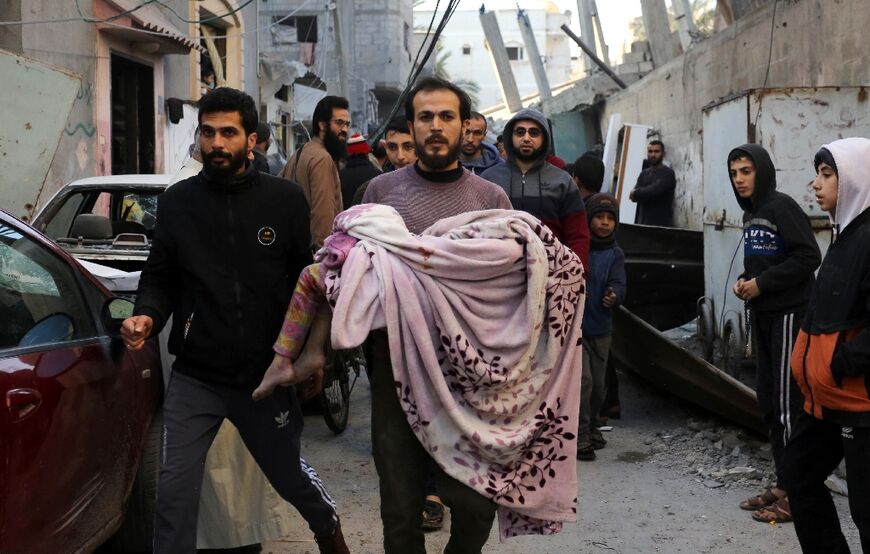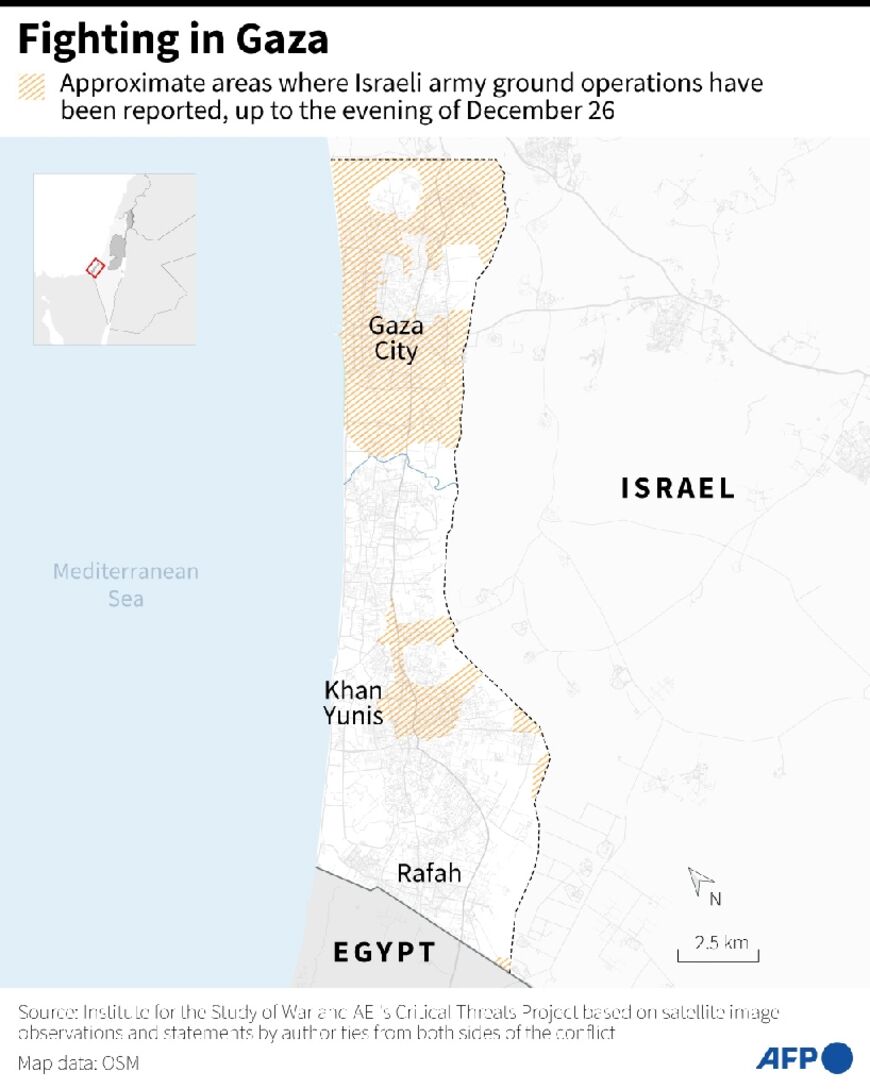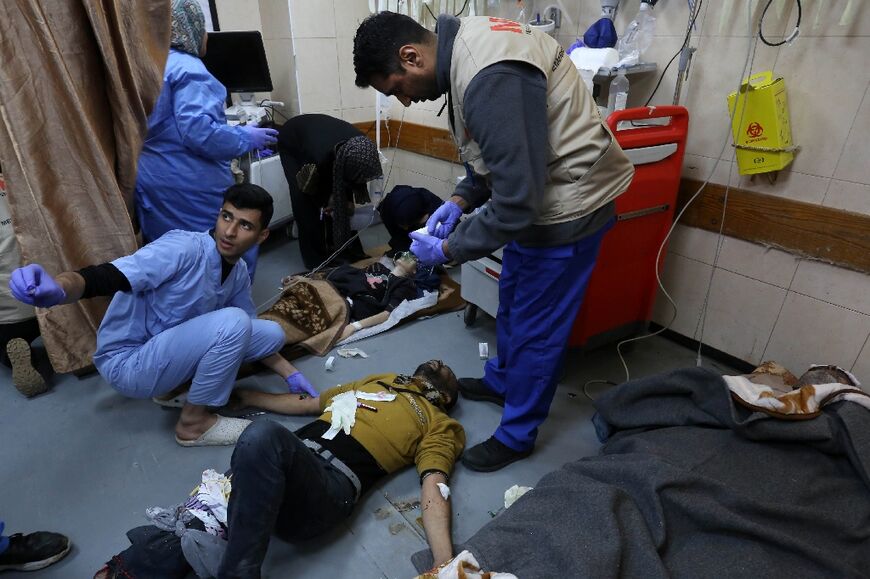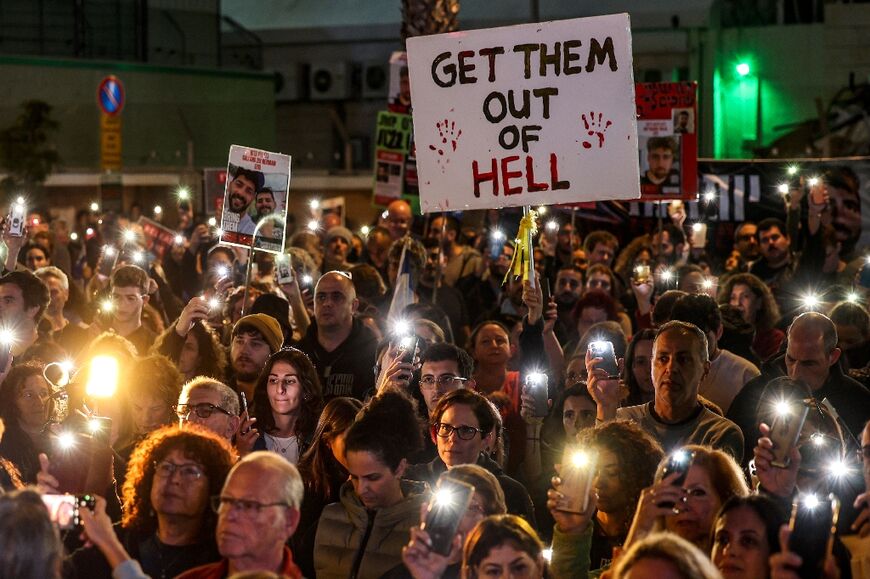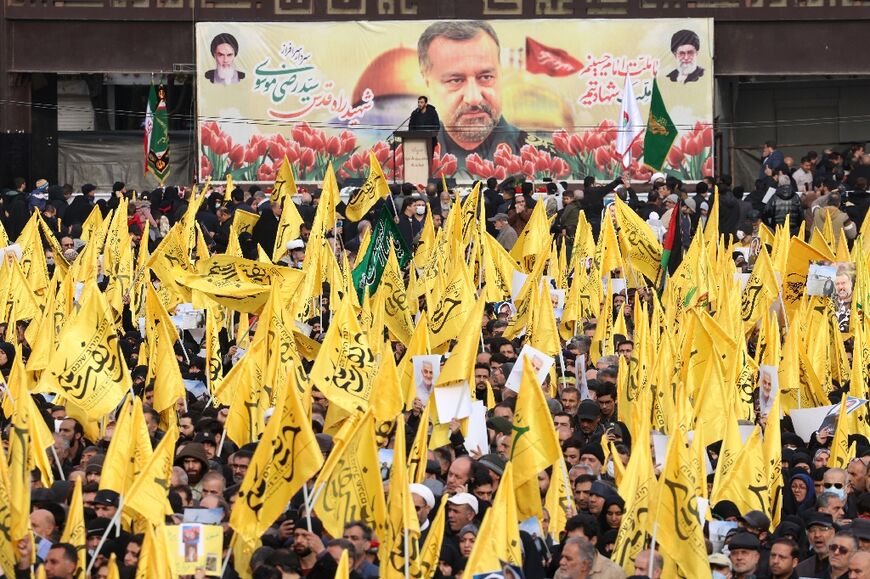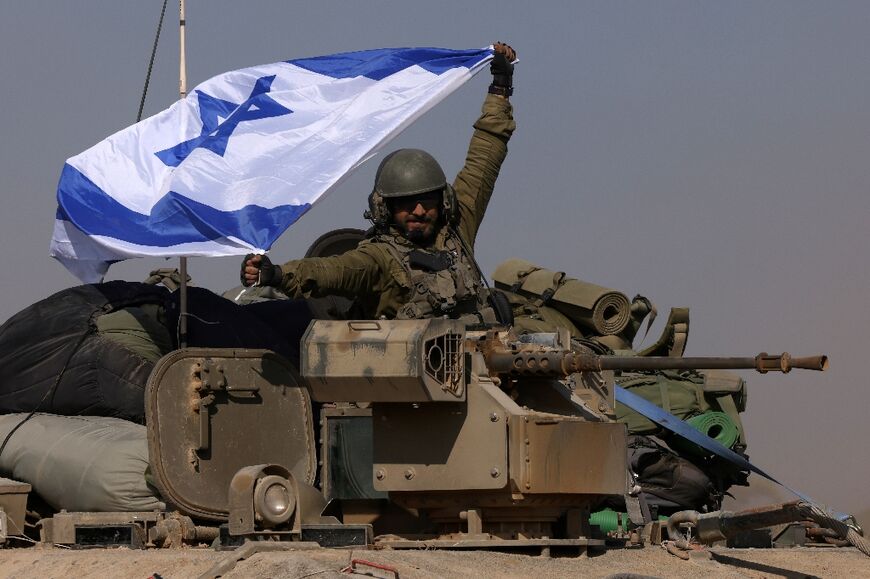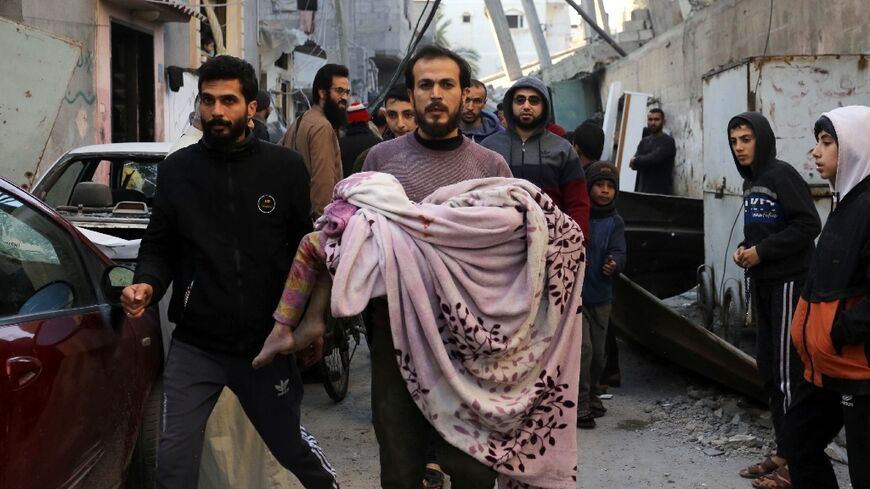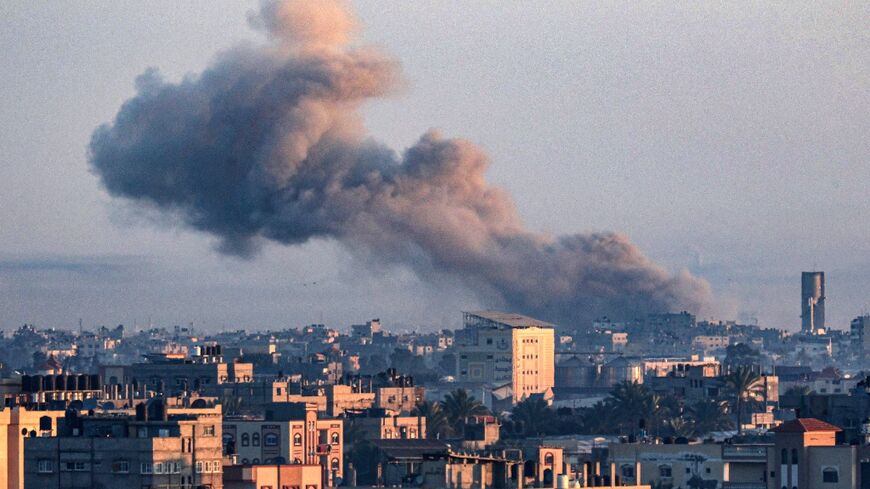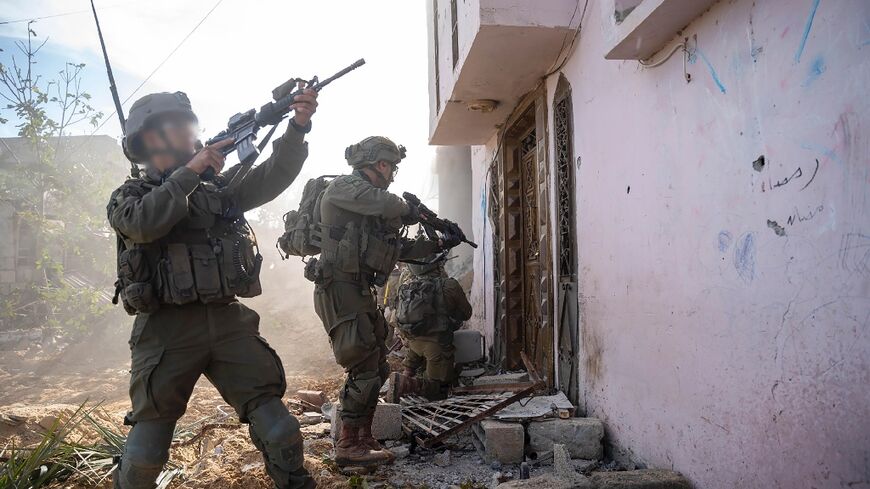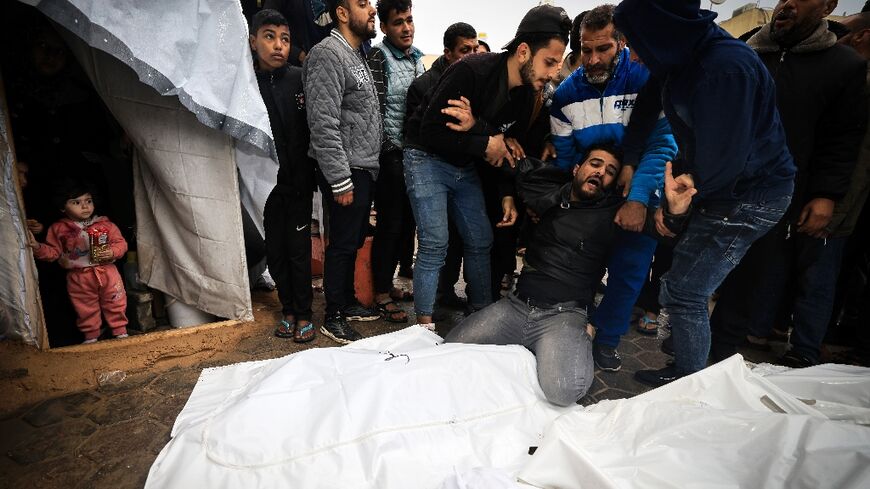Israelis and Palestinians end dark year, with no end in sight to war
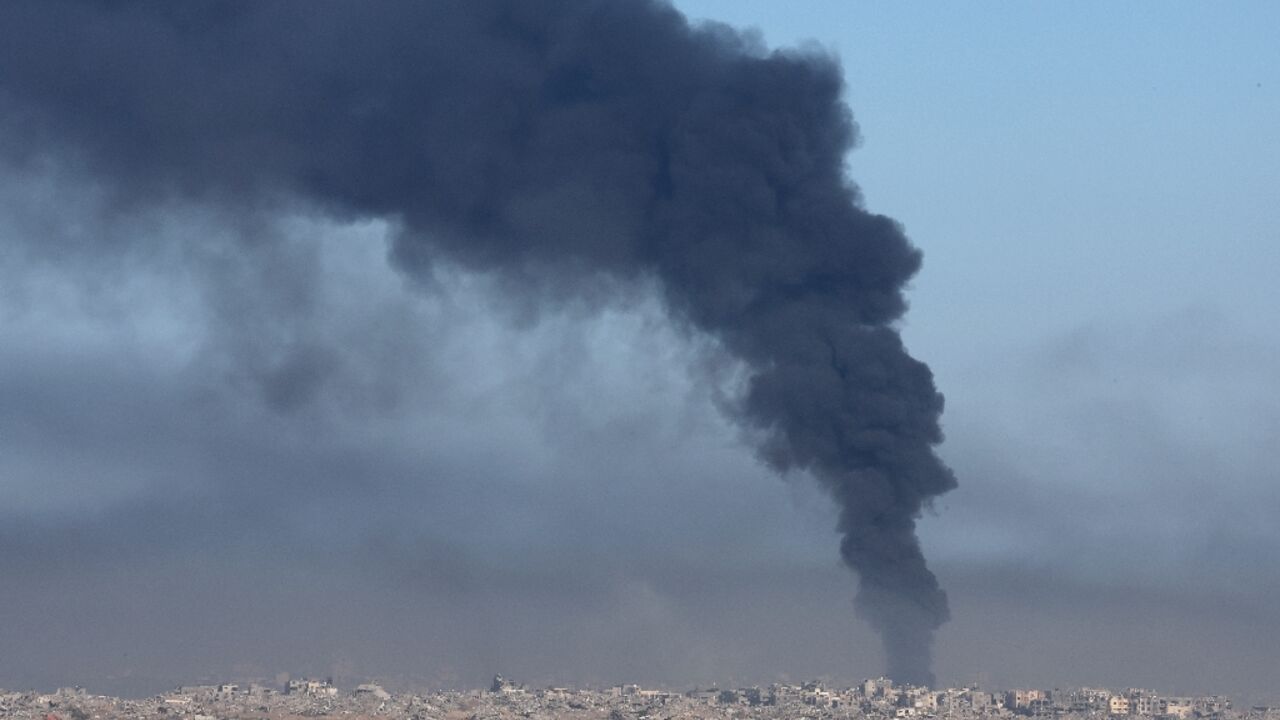
Israeli strikes pounded Gaza on Sunday as both sides near the end of a dark year and Prime Minister Benjamin Netanyahu warned the war sparked by Hamas's October 7 attack will last for "many months".
At least 48 Palestinians were killed in overnight bombing in Gaza City, the health ministry in the Hamas-run Gaza Strip said, with many still buried under the rubble.
"After the explosion we arrived at the scene of the strike and saw martyrs everywhere," said one resident after a building was hit. "Children are still missing, we can't find them."
Another strike killed 20 people sheltering at Al-Aqsa University in the west of Gaza city, witnesses said.
The Israeli army reported killing around a dozen enemy fighters in multiple ground battles, air and tank strikes and said it had located Hamas tunnels, and explosives planted in a kindergarten.
As heavy combat raged on, 85 percent of Gaza's 2.4 million people have been displaced, according to the UN, which warns of a growing risk of hunger and disease as desperate families shelter in makeshift tents against the winter cold.
The world has watched on in horror for months as the decades-old Israel-Palestinian conflict exploded into the bloodiest ever Gaza war after Hamas launched its unprecedented attack on October 7.
The Palestinian gunmen overwhelmed Gaza's high-tech border fence and burst into southern Israel in an attack that killed about 1,140 people, most of them civilians, according to an AFP tally based on official figures.
The surprise attack -- in which Hamas militants also abducted some 250 hostages -- sparked a devastating military response.
Heavy bombardment, and a ground invasion launched three weeks into the war, have reduced vast areas of Gaza to a ruined wasteland and killed at least 21,822 people, mostly women and children, according to the health ministry.
The Israeli army says 172 of its soldiers have been killed inside Gaza.
-'Epic human suffering' -
UN chief Antonio Guterres has condemned the "epic human suffering" and "collective punishment" of Palestinian civilians.
He and other world leaders have repeatedly called for a ceasefire while Israel has vowed to push on until Hamas is defeated, a position backed by its powerful ally the United States.
"The war will continue for many months until Hamas is eliminated and the hostages are returned," Netanyahu reiterated at a news conference on Saturday.
Far-right Finance Minister Bezalel Smotrich called on Sunday for the return of Jewish settlers to the Gaza Strip after the war and said its Palestinian population should be encouraged to emigrate.
"If we act in a strategically correct way and encourage emigration, if there are 100,000 or 200,000 Arabs in Gaza and not two million, the whole discourse of the day after will be completely different," Smotrich told Israeli army radio.
There was no suggestion that the minister's proposals had the support of the government as a whole but Hamas swiftly condemned his comments as a "call to expel two million Palestinians" and a "war crime".
Inside Gaza, Palestinian families -- many pushed into the territory's far south as the battlefront draws ever closer -- are praying for a respite from the war.
"We were hoping that 2024 would arrive under better auspices and that we would be able to celebrate the new year at home with our families," said Mahmoud Abou Shahma, 33, in a camp in Rafah on the border with Egypt.
"We hope that the war will end and that we will be able to return to our homes and live in peace."
- Desperate hostage families -
At least 129 hostages are still believed held in Gaza after more than 100 were released in a prisoner swap during a week-long truce in late November.
Families and friends of the remaining captives have rallied to keep up pressure on the government to bring them home.
"I hope there's going to be another deal, even a partial deal, or that some will be released," said one demonstrator, Nir Shafran, 45.
"I'm trying to hold on to every shred of hope."
International mediators have continued efforts toward a new pause in fighting.
A Hamas delegation from Qatar visited Cairo on Friday to discuss an Egyptian three-phase plan proposing renewable ceasefires, a staggered release of hostages for Palestinian prisoners, and ultimately an end to the war, sources close to Hamas said.
Their allies Islamic Jihad said on Saturday that Palestinian factions were "in the process" of evaluating the proposal and would give a response "within days".
US news outlet Axios and Israeli website Ynet, both citing unnamed Israeli officials, reported that Qatari mediators had told Israel that Hamas was prepared to resume talks on new hostage releases in exchange for a ceasefire.
Netanyahu, asked about the process on Saturday, said Hamas had been "giving all kinds of ultimatums that we didn't accept".
"We are seeing a certain shift (but) I don't want to create an expectation," he said without elaborating.
- Multiple Mideast fronts -
Amid the Gaza war, violence has also flared in the occupied West Bank, and between Israel and some of its regional enemies, an alliance of Iran-backed groups in Lebanon, Syria, Iraq and Yemen.
In the West Bank, a Palestinian stabbed and wounded two people near an Israeli settlement before being "neutralised", police and emergency services said.
Israeli forces have traded heavy fire with Lebanese militant group Hezbollah across the UN-patrolled border.
Another Iran ally, Yemen's Huthi rebels, has launched drone and missile attacks on cargo ships in the Red Sea, saying the strikes are in support of Palestinians in Gaza.
Washington has assembled a multinational naval task force to deter such attacks.
The military said on Sunday that US Navy helicopters sank three Huthi vessels and killed their crews after they had attacked a Danish-owned container ship.
Huthi military spokesman Yahya Saree said on X that 10 members of the group's naval forces were "killed or missing" in the US strike.
burs-fz/kir/hkb
